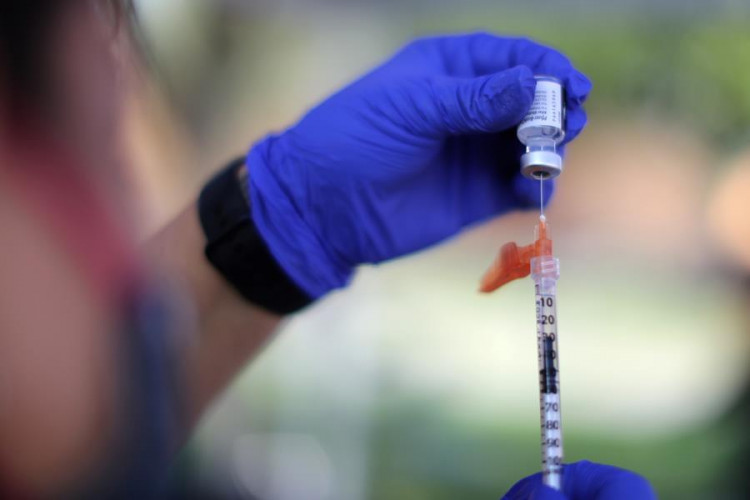At some point, new COVID-19 variants may emerge and be resistant to current vaccines being developed.
In an interview with Fox News, Pfizer Chief Executive Officer Albert Bourla said he believed this scenario can likely happen.
Bourla said while vaccines have the capability to stop the current string of variants, Pfizer is developing a new framework to formulate new forms of treatments to combat mutation.
He said as new threats emerge, Pfizer has a system in place to produce a variant-specific vaccine within around 95 days.
"Every time a variant appears, our scientists are getting their hands around it," Fox quoted the CEO as saying.
"They're researching to see if this variant can escape the protection of our vaccine," Bourla said, adding the company has not identified any yet but they believe it's possible that one day, "one of them will emerge."
Bourla said he expects a variant that will resist current jabs, but emphasized if more people in the United States receive the vaccine, the chances of a widespread mutation taking place will be minimal.
The highly contagious Delta variant continues to spread across the U.S., with health officials reporting 4,116 new infections in Ohio Tuesday. The Delta variant is the most dominant strain of the virus.
Infectious disease experts have said for months that extending the reach of the current vaccines across the population, in the U.S. and abroad, will cut the chances of the virus to further mutate.
According to the Center for Disease Control and Prevention (CDC), around 52% of Americans are currently fully immunized, and around 60% have been administered with at least a single shot of the vaccine.
The Scientific Advisory Group for Emergencies (SAGE), the British government's advisory committee, said increasing rates of virus spread and transmission were generating more opportunities for new variants to emerge.
The CDC estimated that around 93% of U.S. states were at an "increased level" of local transmission. New daily infections have soared more than four-fold in the past month.
But virologist Angela Rasmussen of the University of Saskatchewan in Canada said the possibility of a vaccine-resistant variant was unlikely.






